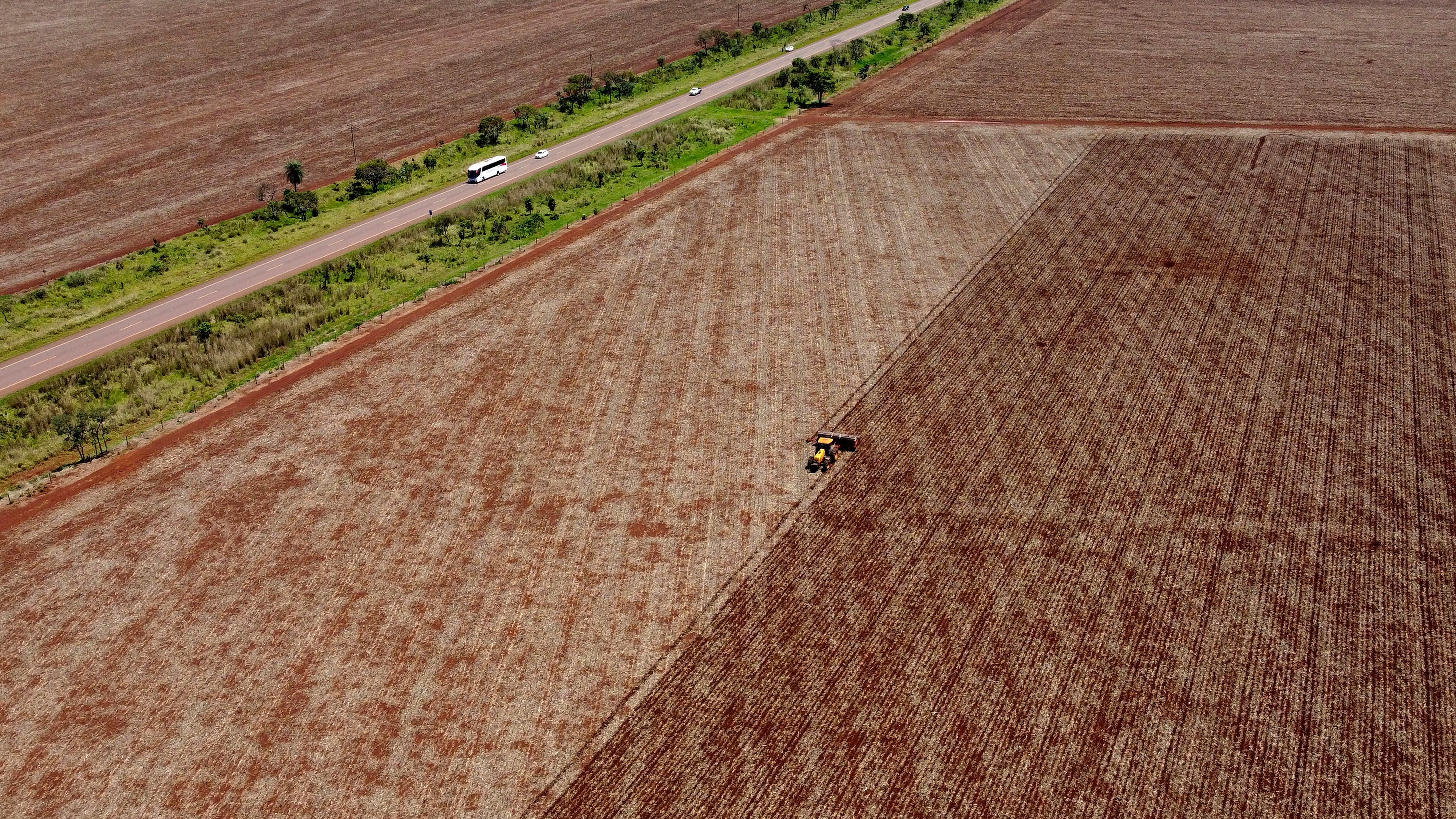Brazilian state law overturns soy moratorium that helped curb Amazon deforestation
In 2006, environmental nonprofits and some of the world’s largest soybean traders came together in a landmark “soy moratorium” to stop the sale of soy grown on illegally deforested land in Brazil's Amazon

Your support helps us to tell the story
From reproductive rights to climate change to Big Tech, The Independent is on the ground when the story is developing. Whether it's investigating the financials of Elon Musk's pro-Trump PAC or producing our latest documentary, 'The A Word', which shines a light on the American women fighting for reproductive rights, we know how important it is to parse out the facts from the messaging.
At such a critical moment in US history, we need reporters on the ground. Your donation allows us to keep sending journalists to speak to both sides of the story.
The Independent is trusted by Americans across the entire political spectrum. And unlike many other quality news outlets, we choose not to lock Americans out of our reporting and analysis with paywalls. We believe quality journalism should be available to everyone, paid for by those who can afford it.
Your support makes all the difference.A historic agreement that's helped curb deforestation in Brazil’s Amazon for nearly two decades suffered a major blow after Mato Grosso, the country´s largest soybean-producing state, passed a law ending incentives for participating processing and trade companies.
The law passed last week was designed to void the Soy Moratorium — a 2006 deal in reaction to a Greenpeace investigation that linked soy produced in illegally deforested areas to U.S. commodities giants Cargill, Bunge and ADM. Under pressure, the companies agreed at the time not to buy soy produced in areas cleared after 2006. The date was later revised to July 2008.
Several studies in recent years have shown the moratorium contributed to the Amazon’s preservation. A 2020 study in the journal Nature Food found that the agreement, in combination with public policies, contributed to the steepest reduction of deforestation recorded in Brazil’s Amazon, between 2003 and 2016.
Backed by soybean producers and most of Mato Grosso´s lawmakers and mayors, the new legislation cuts tax benefits to companies that participate in any agreement that imposes restrictions on expanding agricultural activities into areas that can be legally deforested. Governor Mauro Mendes signed the law Oct. 24. It goes into effect on Jan. 1, 2025, but regulations are pending.
It states that only the illegally deforested area of a farm will be prevented from selling soy. In other words, if a 4,000-acre (1,618-hectare) property clears 200 acres (81 hectares) unlawfully, just the output from that specific area is blocked. Specialists warn that such refined monitoring is technically challenging, if not unfeasible.
Under the moratorium, property with any post-2008 deforestation is forbidden altogether to sell its crops, regardless of whether the deforestation is legal.
Supporters of the new state law have long claimed the moratorium´s 2008 limit is stricter than Brazilian legislation that allows the deforestation of up to 20% of a large rural property in the Amazon.
“We will not rest as long as the moratorium harms even one producer," the Mato Grosso soy producers president Lucas Costa Beber said in a celebratory statement. "And until this agreement is extinct, the trading companies will not have a peaceful sleep."
Environmental nonprofits and the entity representing leading soybean trade and processing companies have criticized Mato Grosso´s initiative.
“The law is a setback,” said Bernardo Pires, sustainability director of the Brazilian Association of Vegetable Oil Industries (Abiove), which supports the moratorium. “Companies committed to sustainability should receive twice as many benefits instead of losing them.”
Abiove members, which include Cargill, Bunge and ADM, buy over 90% of Mato Grosso´s soy production. The state tax benefits amount to $308 million a year.
Pires said the moratorium´s zero deforestation policy is a market demand. "Our European customers demand not to consume any products associated with deforestation,” he said.
Cristiane Mazzetti, coordinator of the forests campaign at Greenpeace Brazil, said the law reveals a double standard among politicians connected to agribusiness, who in the Brazilian Congress seek to pass measures reducing environmental protection.
The new law sparked mixed reactions within President Luiz Inácio Lula da Silva’s government, which has promised zero deforestation by 2030.
André Lima, secretary of deforestation control at the Ministry of the Environment and Climate Change, said that although state governments have the right to choose which economic activities they want to support, it is unconstitutional to withdraw tax incentives from companies that have adopted sustainability and climate criteria aligned with Brazil’s deforestation reduction goals.
“It also goes against the national tax reform guidelines, which have incorporated sustainable development as an important criterion for promoting more and new tax incentives for the green economy,” he told The Associated Press.
Agriculture Minister Carlos Fávaro, however, praised the law. “The project (moratorium) is stricter than the law, and this creates legitimate dissatisfaction among producers,” he told reporters in an event last week.
___
The Associated Press’ climate and environmental coverage receives financial support from multiple private foundations. AP is solely responsible for all content. Find AP’s standards for working with philanthropies, a list of supporters and funded coverage areas at AP.org.